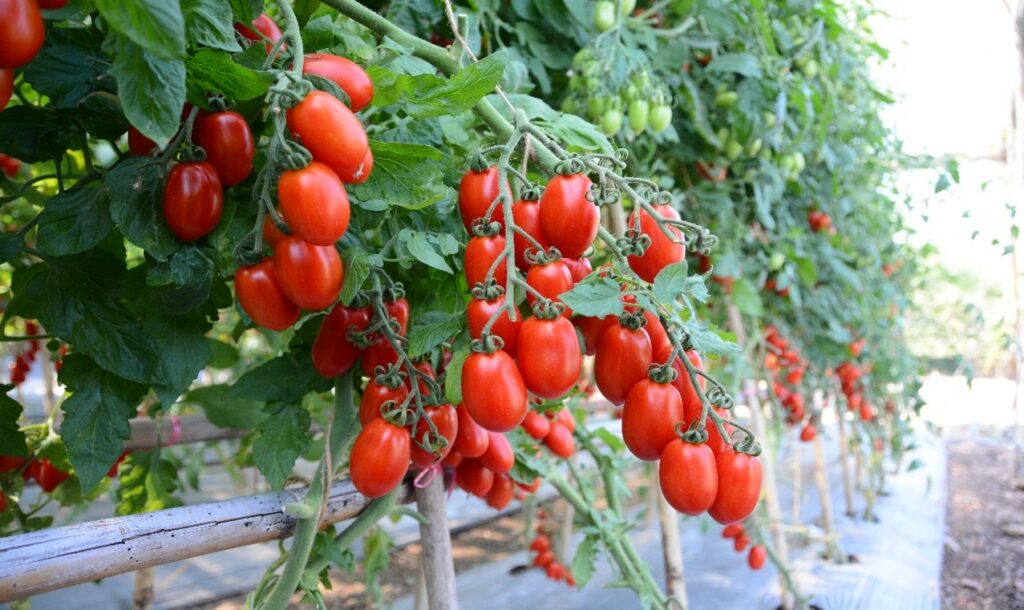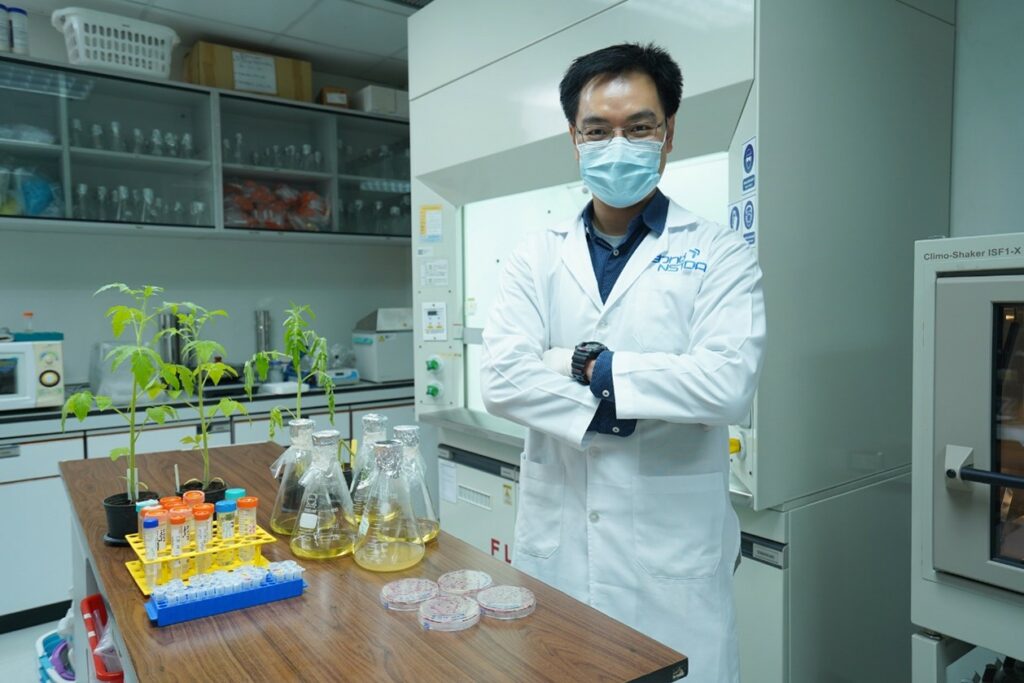
Plant disease control has largely relied on the use of pesticide. This poses a major problem on sustainability since many of these chemicals endanger human health as they have been linked to cancers, birth defects and learning disabilities as well as causing damages to our environments.
The National Center for Genetic Engineering and Biotechnology (BIOTEC), the National Science and Technology Development Agency for the Ministry of Higher Education, Science, Research and Innovation, has developed bacteriophage or phage, which is a virus that can control pathogenic bacteria in plants as alternative solution to widespread usage of chemicals. Biological control that is the use of natural antagonistic agents has no adverse effect on human health or the environment. The study focuses on developing phage to be resilient for the purposes of storage and implementation in the field.
Bacterial wilt disease caused by Ralstonia solanacearum bacteria destroys more than 200 crops, especially economic crops such as tomatoes, eggplants, potatoes, chili, pepper, bananas, ginger, peanut and tobacco, etc. According to statistics from the Food and Agriculture Organization of the United Nations (FAO), bacterial wilt disease has been causing a loss over 35 trillion baht worldwide.
In Thailand, bacterial wilt disease has caused over 540 million baht per year in economic loss of tomato and pepper crops. The soil-borne Ralstonia solanacearum bacteria enter the plant roots and multiplies inside the plants. As a result, the plants wilt and collapse. The bacteria can survive in water, which results in rapid spreading during the rainy season.

Moreover, the bacteria can survive in seed for seasons. It is difficult to prevent bacterial wilt disease as it can survive in the soil for a prolonged period of time. There are also wide ranges of plants with a variety of species. Currently, no chemical is effective enough to prevent it. Therefore, these bacteria become a major problem in tomato and pepper growing regions across the country, causing a huge impact on Thailand’s economic crops.

Dr. Udom Sae-Ueng, BIOTEC researcher from Biomolecular Analysis and Application Research Team, BIOTEC revealed that “the prevention and control of wilt disease at present are done by cultivating the field such as ploughing and drying the soil before planting, conditioning the soil with lime, and removal of symptomatic plants, etc. Using chemicals to kill the bacteria is not very effective because they cannot reach the soil-dwelling bacteria”. Bacteriophages provide an attractive solution to prevent wilt disease since they can infect and decompose bacteria that cause bacterial wilt disease. While bacteriophages might seem to be new for agriculture in Thailand, they have been demonstrated to be effective means to control crop disease in several countries such as USA.
Dr. Udom added that from the collaboration with Dr. Orawan Chatchawankanphanich and the BIOTEC’s Plant Virus and Bacteriophage Research Team, it was found that important properties of bacteriophages, which make them suitable for controlling pathogenic bacteria in plants, are specificity to each type of bacteria. Bacteriophages do not infect non-targeted bacteria, meaning that our phage will not destroy other bacteria, especially beneficial bacteria that are naturally present. Bacteriophages will also stop multiplying once the targeted bacteria are eliminated. Bacteriophages are not toxic to plants, animals and the environment; therefore, it is a perfect alternative for sustainable and environmentally friendly agriculture.

However, using bacteriophages in the field is still challenging. Phage stability becomes compromised due to fluctuating factors in environments such as temperature, acidity, alkalinity, and salinity of the soil, etc. The structure of bacteriophages consisting of protein shell and DNA makes them lose their activity easily. Therefore, it is necessary to address the stabilization mechanisms of bacteriophages using multidisciplinary approaches such as structural biology, biochemistry and nanotechnology in order to build a body of knowledge on the stability of bacteriophages and various factors affecting it.
Dr. Udom is hopeful that the insights acquired will be a key to understand how phages in tropical regions adapt and survive in harsh environmental conditions. This will allow us to overcome challenges in phage stability and promote phage utilization in biocontrol.
